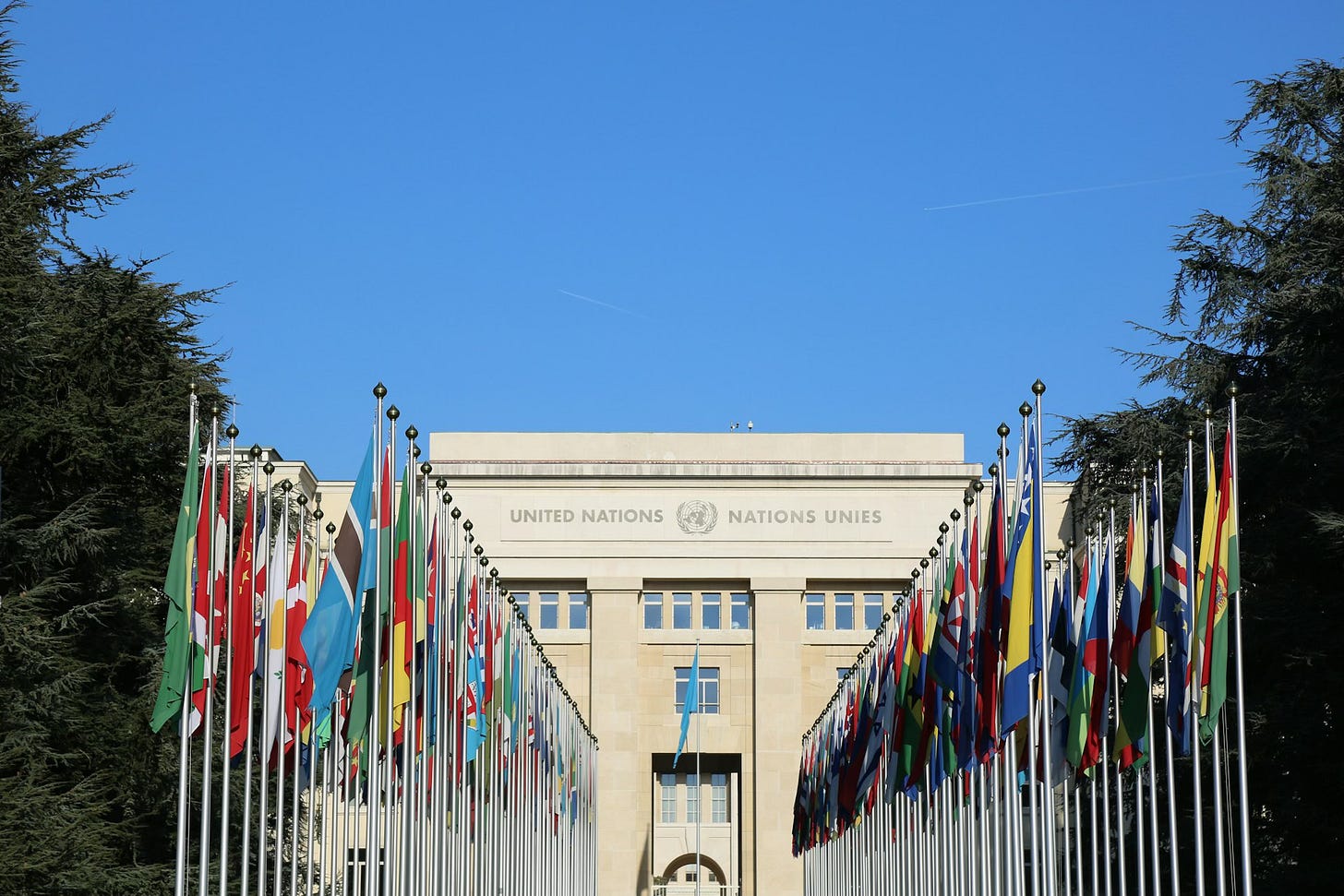The post-Biden foreign policy opportunity
Dems should drop the "rules-based international order"
There is a lot to say and great space for speculation after US President Joe Biden announced he would no longer seek a second term. One thing is clear: Despite any challenges of the Democrats’ current situation, the departure of an incumbent president from the campaign presents an opportunity for a change in mindset and rhetoric.
Even if Vice President Kamala Harris turns out to be the nominee, the party is at an explicit moment of discontinuity. She would celebrate and defend the administration, but she hasn’t been the boss these three-and-a-half years and is not so intimately tied to Biden’s foreign policy as he was in the Obama administration.
Any Democratic candidate will be coming in with a mandate for change, and Democrats should take this opportunity to lay to rest a tired and battered foreign policy bumper sticker: the rules-based international order (RBIO).
The RBIO has been an absolutely central talking point and concept in Democratic foreign policy since the Obama administration.1 The idea was appealing at a time when the US government was supporting the Philippine case at an arbitral tribunal convened under the UN Convention on the Law of the Sea (UNCLOS) challenging China’s activities in the South China Sea. It meshed with an approach to Chinese economic behavior that turned to World Trade Organization (WTO) cases and the possibility of future agreements both without and with China (the Trans-Pacific Partnership and a bilateral investment treaty, respectively). But it never held up very well to the simple observation that the United States was not particularly interested in international law and the associated order when it came to war in Iraq, settlements in the West Bank, or indeed ratifying UNCLOS.
Some genuinely believed, despite these inconsistencies, the RBIO was a worthy ideal to champion. The 2016 Clinton campaign ran with it, and after the Trump years, the Biden administration (now containing major parts of the Obama and Clinton teams that had championed the RBIO) found it to be a good banner for what it now sought to restore as a US lodestar. It now competes and overlaps in the foreign policy macro-concept mindscape with ideas like “great power competition” and “democracy vs. autocracy.”
These new master labels are sometimes at odds with the RBIO. Is it OK for a state to break the order’s rules if it’s a democracy invoking a challenge from autocracy? Is great power competition about rules and order, or about dominance and primacy? How are the rules at the WTO doing, given bipartisan US tariffs? And even more today than in the Obama administration, the simple observation critique is impossible to avoid. As Obama-era NSC speechwriter Ben Rhodes writes in the current issue of Foreign Affairs:
[A]fter Hamas’ October 7 attack on Israel and the Israeli military campaign in Gaza, American rhetoric about the rules-based international order has been seen around the world on a split screen of hypocrisy, as Washington has supplied the Israeli government with weapons used to bombard Palestinian civilians with impunity. The war has created a policy challenge for an administration that criticizes Russia for the same indiscriminate tactics that Israel has used in Gaza…
Robert O’Brien, a former national security adviser during the Trump administration, attacks the RBIO from another direction:
The Biden administration … seems less interested in fostering good relations with real-world democratic allies than in defending fictional abstractions such as “the rules-based international order.” Such rhetoric reflects a globalist, liberal elitism that masquerades as support for democratic ideals.
While I’ve often had trouble with Rhodes’ arguments and policy proposals, it’s hard to find fault with him here. As for O’Brien, who presents a delusional-at-best and more likely consciously disingenuous argument that Trump was the better bridge builder with democracies, he’s not entirely off-base applying the term “masquerade” to use of the RBIO.
A rules-based international order might be a noble ideal (though we’d want to take a look at the rules and who can get away with ignoring them). But it’s not something well established today that the US government truly seeks to defend. The reality is messier, and there’s no sense in pretending the post-WWII or post-Cold War moment is either intact or desirable.
Harris, or whoever, should abandon the idea of defending a status quo that never really existed. Democrats should offer something realistic and new that Trumpist Republicans cannot. Rhodes offers some good ideas, but, in drafting, he was somewhat constrained by the assumption Biden would still be in the picture.
I’m not here this Monday evening to write this new foreign policy vision, but it should not be about defending something old. For the first time since 2008, Democrats have the opportunity and energy to take stock and offer something new. They should use it.
###
As always, thanks for reading. If you have not subscribed, please do. If you wish to support this effort and have the means, please consider a paid subscription.
About Here It Comes
Here it Comes is written by me, Graham Webster, a research scholar and editor-in-chief of the DigiChina Project at the Stanford Program on Geopolitics, Technology, and Governance. It is the successor to my earlier newsletter efforts U.S.–China Week and Transpacifica. Here It Comes is an exploration of the onslaught of interactions between US-China relations, technology, and climate change. The opinions expressed here are my own, and I reserve the right to change my mind.
The term has a longer history, but it seems to bubble up in its current context (heavily about threats to the putative order from China) in the early aughts in Australia, according to some quick database searches. It looks like the phrase first appears in The New York Times in 2008. This isn’t a time for a deep dive into the history, but if you’ve seen one do please shoot me a note.


